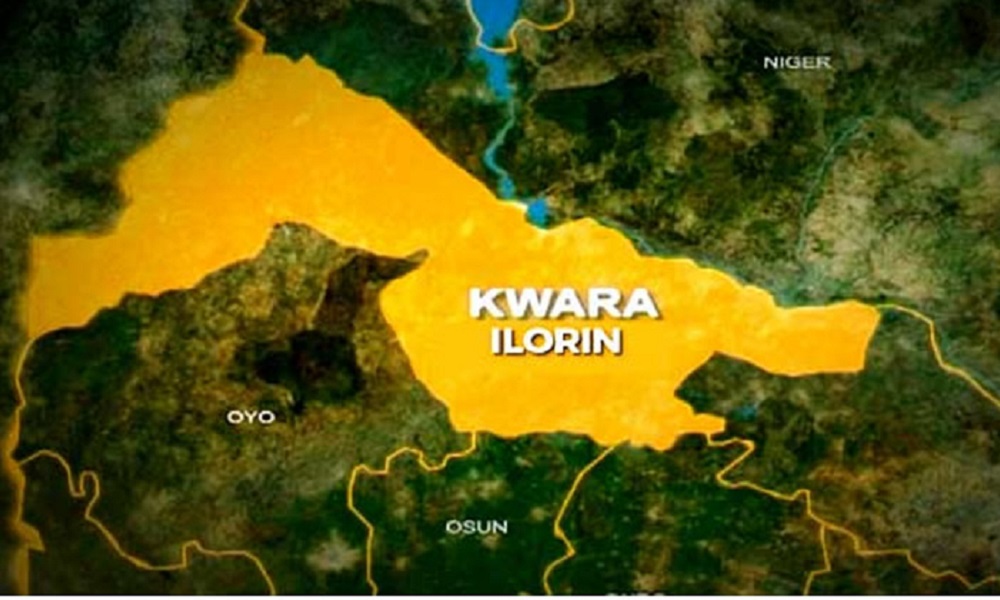News
N11.5bn lost to Shonga rice plantation flooding – Kwara Rep

A member of the House of Representatives from Kwara State, Dr. Ahmed Saba, says about 5,000 hectares of rice plantations, worth N11.5bn, were devastated by the recent flooding at Shonga, Edu Local Government Area of the state.
The flood submerged farmlands in several communities across three local government areas of Kwara State.
The unusual flooding, which began on the night of Friday, February 24, 2025, affected communities in the Moro, Edu, and Patigi Local Government Areas.
Saba, who represents the Edu/Moro/Patigi Federal Constituency, visited the site of the disaster in Shonga, Edu LGA, on Saturday and confirmed that other communities were similarly impacted.
“The flooding has ravaged rice plantations in Fonga and Jebba in Moro; Lade, Patigi, and Kpada Districts in Patigi; and Shonga, Bacita, and Lafiagi in Edu LGA,” Saba reported. “Over 5,000 rice farmers have been affected by this incident, which is believed to have been caused by the opening of dams in Jebba and Kanji, Niger State,” he added.
Describing the flood as a major threat to the country’s food security, Saba expressed deep regret over the extent of the damage.
“Farmers who had been engaged in dry season farming were shocked to see their land flooded, as this typically does not happen outside the rainy season,” he said.
Saba further emphasised the high quality of rice produced in the affected areas, highlighting that the rice from Moro, Edu, and Patigi is some of the best in Nigeria and feeds many Nigerians.
“What happened to my people is devastating. We’re used to flooding during the rainy season, but this flood is unlike anything we’ve seen before, especially during the dry season,” Saba lamented. “The opening of the dams in Jebba and Kanji has caused serious harm. Billions of naira have been lost, and many farmers who had invested over the past three months are left in despair.”
Saba added that the flooding was a major food security risk, stressing that the rice produced in these areas is a crucial part of the national food supply.
“The opening of the dams seems suspicious. We need a thorough investigation into why this water was released, especially at this time of year when we’re in the dry season,” he said.
The legislator vowed to raise the issue in the House of Representatives as soon as the Assembly reconvenes from recess. He called on federal agencies to investigate the causes of the flood.
To help mitigate the effects of the disaster, Saba distributed aid to the affected farmers, including 150 bags of NPK fertilizer, 50 knapsack sprayers, 50 bags of rice seeds, 170 liters of pesticides, and 10 solar water pumping machines.
“The House of Representatives is currently on recess, but when we reconvene, we will introduce a motion to address this matter,” Saba said. “We also call on the Ministries of Agriculture and Water Resources to examine what happened and find ways to support the farmers so they can return to their work. At the National Assembly, we are doing our part by providing immediate relief through fertilizers, water pumps, and other supplies.”
Saba acknowledged the efforts of the Kwara State government, which had sent a delegation to the affected areas and provided support to the farmers.
In addition, Gideon Yisa, a member of the Kwara State House of Assembly representing Edu Constituency, expressed his concern for the farmers.
“This is a tragic situation,” Yisa said. “The farmers were not expecting this flood because they had already left their land fallow for the dry season. The dam operators did not warn them about the water release, which has severely impacted the farmers and the local economy. This is a threat to food security.”
Yisa urged the federal government to act swiftly to support the farmers.
“This is a matter of national importance. If nothing is done, it could lead to hunger and insecurity. Many of the issues we face, including insurgency and banditry, are linked to unemployment and lack of opportunities,” he said.
The Emir of Shonga, Dr. Haliru Yahya, also expressed surprise at the flooding during a visit by a state government delegation.
“There has been no rain from here to Ouagadougou in Burkina Faso, Niger, or Mali. The Sahel is dry, so how could there be flooding here?” he questioned. “The source of this flood must be local.”
The Emir confirmed that officials from the Kainji Dam denied any involvement in the flooding, while Jebba Dam authorities admitted to opening the dam and indicated they would soon close it.
He urged for a thorough investigation to prevent a repeat of the disaster.
“We have worked hard for many years to attract people to this area, and we hope this does not happen again, as it would exacerbate food insecurity,” he said.
News
A Chat with Janet Odio Okolo: A Mother’s Journey Raising a Child with Down Syndrome

News
Hon. Nnamchi Begins Street Lights Deployment In Isi Uzo(Photos)

Honourable Paul Sunday Nnamchi, representing Enugu East/Isi Uzo Federal Constituency in the 10th House of Representatives, has fulfilled his promise to illuminate communities in Isi Uzo Local Government Area.
The lawmaker has just begun the deployment of high-density solar-powered street lights in Ikem Nkwo, marking the beginning of a massive rollout of the street lamps across the communities in Isi Uzo.
This initiative, which started in Enugu East Local Government Area in 2024, aims to support the fight against insecurity in the state which according to him was to add to what Chief Security Officer of Enugu State Barrister Peter Mba had done to secure the state to attracts foreign investments.
The lawmaker expressed concern over banditry attacks, particularly by herdsmen, in some communities within Isi Uzo and Enugu East Local Government Areas in the recent pasts.
He believes that illuminating these areas with high-density street lights would help address the insecurity adding that he was prioritizing border and farming communities in Isi Uzo, where banditry has displaced residents and restricted farming activities.
Communities in Ikem, Eha-Amufu in Isi Uzo which borders Enugu and Benue State and Ugwogo-Nike in Enugu East have been vulnerable to these attacks due to their strategic locations.
News
May Day: Kalu Hails Workers, Applauds Their Role in Nation Building

By Gloria Ikibah
Deputy Speaker of the House of Representatives, Rep. Benjamin Kalu, has extended warm wishes to Nigerian workers as the country marks the 2025 edition of International Workers’ Day.
Kalu praised workers across various sectors for their commitment and resilience, describing them as the engine that keeps the nation moving. He acknowledged their sacrifices and unrelenting drive, especially during tough economic times.
In his message, he highlighted the efforts of the current administration under President Bola Tinubu to improve the welfare of public servants. He referenced the National Assembly’s prompt backing of the new minimum wage as a sign of the government’s seriousness about workers’ wellbeing.
The Deputy Speaker appealed for continued patience and understanding from Nigerians, noting that the ongoing economic reforms, while challenging, are designed to bring long-term relief and prosperity.
Kalu also called for unity, and said the country can only overcome its present difficulties if citizens and leaders work together in good faith.
He therefore urged workers to keep the faith and remain steadfast in their duties, assuring them that brighter days are on the horizon, and wished Nigerian workers a peaceful and fulfilling May Day celebration.
-

 Metro15 hours ago
Metro15 hours agoGunmen storm University of Benin teaching hospital, kill doctor
-

 Metro16 hours ago
Metro16 hours agoFCTA destroys 601 motorbikes over violations
-

 News7 hours ago
News7 hours agoAlleged money laundering: EFCC produces Aisha Achimugu in court
-

 News16 hours ago
News16 hours agoJust in: FG declares tomorrow public holiday
-

 News9 hours ago
News9 hours agoJUST IN: Major General Paul Ufuoma Omu Rtd, dies at 84
-

 News9 hours ago
News9 hours agoTinubu hails Dangote’s World Bank appointment
-

 News11 hours ago
News11 hours agoSAD! Professor’s son takes own life inside varsity staff quarters
-

 News15 hours ago
News15 hours agoFull list: FG approves N110bn to rehabilitate medical schools 18 institutions























